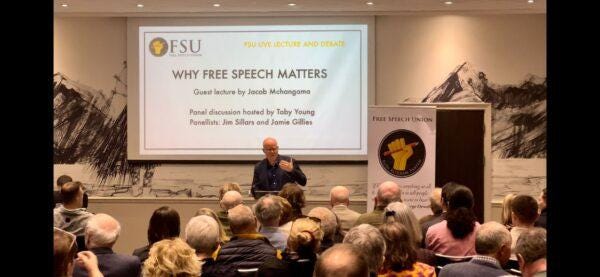Fried Green Tomatoes Part 1
Update 332 Today's Bill Special
I am now going to split this post in two and get this part out urgently due to the news that Kemi Badenoch may be interested in working with Liz Truss on the latter’s private member’s bill which should get its first reading today in the Commons. This would be amazing, of course!
Thanks to a reader for suggesting No 13 in the Leading Female Season and this time you get four leading females all at one go! Fried Green Tomatoes at the Whistle Stop Café is set in Alabama and weaves together the past and the present through the blossoming friendship between Evelyn Couch (Kathy Bates), a middle-aged housewife, and Ninny Threadgoode (Jessica Tandy), an elderly woman who lives in a nursing home. Every week Evelyn visits Ninny, who recounts stories of her youth in Whistle Stop, Alabama, where her sister-in-law, Idgie (Mary Stuart Masterson), and her friend, Ruth (Mary-Louise Parker), ran a café. Well I had to have someone called Masterson included, didn’t I !? 😂 Also about time I featured a lesbian relationship - that’s Idgie and Ruth not Evelyn and Ninny. Though you never know. 😊
Liz Truss’ Bill
Christopher McKeon in The Independent ( Government could back Liz Truss’s transgender law reforms 15 March) reports:
Liz Truss © PA Wire
The Government could be set to back proposals from Liz Truss that would bar “biological males” from female-only spaces.
Equalities Minister Kemi Badenoch is understood to be sympathetic to proposals from the former prime minister, due to be debated in the Commons on Friday, that would “define sex in law as biological sex”.
The legislation aims to bar transgender women from female-only spaces such as changing rooms and toilets, along with preventing them from competing in women’s sport and stopping children from attempting to change their gender.
But the Cabinet minister is said to regard Ms Truss’s current proposals as “unworkable” and could look to amend them.
A Government aide said: “Kemi is very supportive of the aims of Liz’s Bill but it is unworkable in its current form.
“Nonetheless it can support Kemi’s work on the definition of sex, and colleagues’ work banning puberty blockers, and Liz is keen to help.”
Ms Truss has previously said her Bill would provide a clear dividing line with Labour on what has become one of the main “culture war” issues.
The aide agreed, adding: “The Labour Party is hopelessly split on these issues, so the Conservatives should be open to all ideas to improve protections for women and girls.”
As a backbench Bill, Ms Truss’s proposals are unlikely to become law without Government support, and may not even be debated on Friday as there are two other Bills on the order paper ahead of it.
But the Government is said to be largely sympathetic to her aims, with the Department of Health and Social Care understood to be the final block to accepting the former prime minister’s legislation.
A Whitehall source said: “The Bill has policy consequences which the Government is sympathetic to.
“The only questions which have puzzled ministers is why the MP proposing the Bill did not legislate for the changes when she was minister for women and equalities or when she was prime minister.”
The debate on Ms Truss’s Bill follows the announcement on Tuesday that the NHS will no longer prescribe children puberty blockers, a move welcomed by the Government as being in “the best interests of the child”.
The Government also published draft guidance in December on how schools should support pupils who were questioning their gender, which stated that “parents should not be excluded” from decisions relating to children who want to “socially transition”, for instance by changing names, pronouns or clothing.
Ahead of Friday’s debate, Ms Truss said she was “very much hoping” that the Government would support her Bill, adding: “This would be hugely positive for the protection of children.”
She said: “I have been overwhelmed with supportive messages this week not only from constituents, but from people across the country and indeed all corners of the world who want to see my Bill put into law so that children and women get the protections they need in the face of the extreme agenda being pursued by militant gender ideologues.”
The current version of the Bill is here:
https://publications.parliament.uk/pa/bills/cbill/58-04/0035/230035.pdf
Scottish Hate Crime Act
As regular readers will know, I don’t think we should have such a thing as hate crime on the statute book. It is a method for government to suppress free speech. In terms of us in the Terf Resistance, it gifts trans rights activists with methods of harassing us by making false claims and allegations. Even if an allegation does not result in a conviction, as we know ‘the process is the punishment’. The Scottish Act, which is to be brought into force on 01 April, looks very worrying indeed. I would hope that there may be challenges to the legislation itself as to whether it is compatible with the Human Rights Act 1998. It seems to me that this would be a challenge based around the legislation being incompatible with Article 9 of the Human Rights Act ( freedom of thought , conscience and religion) and Article 10 (freedom of expression). This would be a high court challenge.
I note immediately that, though ‘transgender identity’ is one of the protected characteristics, ‘sex’ is not included.
I hope to do a bit more of a deep dive into this awful piece of legislation soon - unless someone gets to it before me!!
Owen Evans in Epoch Times( Scotland’s ‘Dangerous’ Hate Crime Law Coming Into Effect Next Month March) reports:
Police Scotland has set up designated walk in ‘Third Party Reporting Centres’ which include sex shops and salmon farms, for the public to report hate crimes.

A controversial new hate crime law, described as “dangerous” by free speech activists and MPs, is set to come into effect next month.
On Tuesday, the Scottish government announced that The Hate Crime and Public Order (Scotland) Act will be enforced from April 1.
The new law creates new “stirring up of hatred offences” for protected characteristics, including “age, disability, religion, sexual orientation, and transgender identity.”
The act has been described as “dangerous,” and could see people prosecuted in their homes, by a range of free speech groups and Scottish Conservative MPs.
Despite being inactive, Police Scotland has been readying itself to implement the act by extensive hate crime training.
Authorities also staged a mock trial to highlight racially aggravated hate crimes.
Hate Crime Third Party Reporting Centres
Police also set up designated “Hate Crime Third Party Reporting Centres” which include housing associations, victim support offices, voluntary groups, and even private businesses such as fish farms, caravan parks and even a sex shop in Glasgow.
The Highlands and Islands of Scotland, the most remote and sparsely populated part of the United Kingdom, has 17 Hate Crime Third Party Reporting Centres alone.
Police say that staff “have been trained to recognise hate crimes and help a victim or witness to submit a report to the police.”
Stuart Waiton, senior lecturer in sociology and criminology at Abertay University, has previously called it the most “illiberal and censorious bill in any liberal democracy in the world.”
He is part of the campaign group Free to Disagree, which highlights the threat that the act poses to free speech.
Mr. Waiton told The Epoch Times by email: “When is a law not a law? When the incoherent Scottish government draft it.”
“The Hate Crime Bill was passed three years ago, but it has taken this long for the police to be prepared to implement it,” he said.
He said that the “woolly language and the implications of a bill that could see people arrested for muttering ‘incorrect’ statements in their own home are of the utmost seriousness.”
“Unfortunately, this bill once again demonstrates the dangerous nature of the Scottish government, where a bill the public oppose is forced upon them against their will in a manner that reflects the elitist, almost aristocratic nature of the court like system in Holyrood,” said Mr. Waiton.
He said the law is “part of a protection racket being developed by the modern elites, whose views of the ‘deplorable’ public mean they feel the need to invent ever more ‘protected characteristics’ who they (the good people) can then protect.”
“In the process, the public are educated about this imagined world of hate, where every minority is encouraged to think that they are under seige, and where, as a result, divisions are exaggerated and encouraged, and ultimately forced upon us through the power of the state and the police.”

Reacting to the news, the Free Speech Union (FSU) pointed out that the Scottish government disclosed that age will become a protected characteristic later this year, meaning that describing someone as a “grumpy old man” or a “callow youth” could soon constitute a hate crime.
FSU said that the law empowers the Scottish state to prosecute individuals for what is communicated in private as well as in public.
“In other words, if you express controversial opinions in a private conversation, in your own home, and the police receive a complaint about it, you could be found guilty of committing a hate crime,” it wrote.
Humza Yousaf
The Scottish National Party’s bill, introduced by First Minister Humza Yousaf when he was justice secretary, was approved by the Scottish Parliament in 2021 and has received Royal Ascent. It has been dormant until now.
The bill has been criticised as authoritarian because it further restricts what can and cannot be said in a public forum.
The Scottish Government says the new act is designed to make hate crime law “fit for the 21st century“ and defines hate crime as the phrase used to ”describe behaviour which is both criminal and based on prejudice.”
“Stirring up hatred offences” will apply to characteristics including age, disability, religion, sexual orientation, transgender identity, and variations in sex characteristics, which some argue will clash with the expression of views on all manner of subjective beliefs.
In England, there is no such thing legislatively as a “hate crime,” rather, there are several pieces of relevant legislation under which people can be prosecuted for offences toward protected characteristics, such as the Communications Act 2003 or the Public Order Act 1986.
Lived Experience
In a statement, Minister for Victims & Community Safety Siobhian Brown said a new campaign to highlight the law is informed by “lived experience.”
“For those impacted by hatred and prejudice, the results can be traumatic and life changing. While we respect everyone’s right to freedom of expression, nobody in our society should live in fear or be made to feel like they don’t belong, and the Scottish Government is committed to building safer communities that live free from hatred and prejudice.
“Hate crime is behaviour that is both criminal and rooted in prejudice. It can be verbal, physical, online or face-to-face. The new law will give greater protections to those who need it and helps to form the basis of understanding about the type of behaviour that is not acceptable in our society.
“We must do all we can to give victims and witnesses the confidence to report instances of hate crime, which is why we have launched a new campaign, ‘Hate Hurts’. The campaign is informed by lived experience, and explains what a hate crime is, the impact it has on victims and how to report it.”
Chief Superintendent Faroque Hussain, hate crime prevention lead, Police Scotland, said: “We want everyone targeted by hate crime, or those who witness it, to have the confidence to come forward. They can be assured they will be treated with dignity and respect and that the circumstances they report will be fully investigated.”
Hate Crime Workshops and Training
A Police Scotland spokesman told The Epoch Times by email: “Police Scotland has used Hate Crime Third Party Reporting Centres for a number of years.
“In some cases, victims and witnesses of a hate crime may not feel comfortable approaching the police directly. Third Party Reporting Centres provide them with a safe space to make a report, and we constantly review these alongside the Scottish government.
“Any business or organisation can volunteer to be a Third Party Reporting Centre, and they reflect the diverse nature of our local communities. Staff are trained to ensure they can assist victims or witnesses.”
The spokesman confirmed to The Epoch Times that police are undergoing an extensive programme of hate crime workshops and training.
“Hate crime and discrimination of any kind is deplorable and entirely unacceptable and we will investigate every report,” he said.
‘Serious Questions’
A number of Scottish Conservative MPs expressed major concerns to The Epoch Times by email.
Scottish Conservative shadow justice secretary Russell Findlay MSP said: “Scotland’s police officers have been pushed to breaking point by relentless SNP cuts, so expecting them to enforce this flawed legislation should not be a priority.
“The belated enforcement of Humza Yousaf’s flawed and dangerous Hate Crime Act comes days after Police Scotland admitted they won’t investigate a range of other crimes,“ he added, stating that he ”would bin this law, which risks harming free speech.”
Scottish Conservative MSP Annie Wells said that “serious questions must be asked as to who thought a sex shop was an appropriate setting to report a hate crime.
“The SNP’s act is flawed enough without asking people to relay their experiences in this sort of outlet in the heart of the city centre.
“Glaswegians will rightly be wondering what the thinking is behind this decision. Police Scotland should drop this shop from their reporting centres as a matter of urgency.”
A Scottish spokesman told The Epoch Times by email, “As Police Scotland has said victims and witnesses of a hate crime may not feel comfortable approaching the police directly.”
He said that is why “Third Party Reporting Centres, which have been in place for a number of years, offer a safe alternative space to make a report.”
“Our Hate Crime Strategy commits to review third-party reporting arrangements in partnership with Police Scotland, which has already commenced. A short-life working group will re-evaluate the criteria of a third-party reporting centre, recording and maintenance of the scheme and how to improve support for centres and victims,” he added.
The Act itself is here: https://www.legislation.gov.uk/asp/2021/14/introduction/enacted
Endpiece
The Scottish Hate Crime Act has brought this to my mind!



Oh Dusty, the lovely trailers brought back so many good memories & reminded me how good the film was & has stood the test of time very well. Fried Green Tomatoes, like Thelma & Louise are two films that feature lesbians in a kind & thoughtful light.
I never thought that the day would come when I would say, ‘thank heavens for Liz Truss’. I’m hoping the debate on her amendment will take place, even if it doesn’t pass. That way, at least the argument can be had.
The Scottish Hate Crime Act is a self-defeating endeavour; their Reporting Centres will be overwhelmed by TRA complaints which will flood in by the sackful 🤣😂🤣 & will take up so much police time, they’ll surely have to bin the act.
Humza Yousaf has been fully captured for years; he’s not very popular & I hope this act will finish him off politically.
I hate that ‘lived experience’ tosh; experience is obviously lived. The phrase is a tautology.
I’ve always loved Pastor Niemoller’s poem; it sums up what will happen to free speech if we don’t stand together.
Thanks very much,Dusty, for all your efforts to bring us all the latest developments.
I tried to find a good scene but sound quality was poor in some & others had music so loud I couldn’t hear the dialogue. Glad you found something.